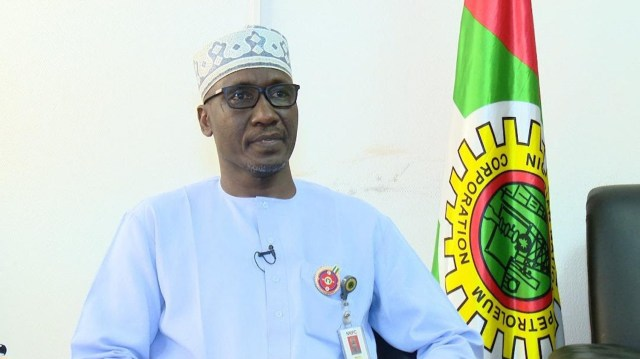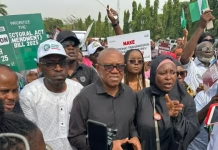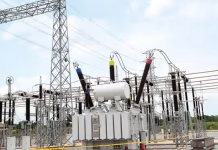The Nigerian National Petroleum Corporation (NNPC) has stated that it has begun holding talks with its partners for the construction of the Nigeria Liquefied Natural Gas (NLNG) Train 8.
This was disclosed by the Group Managing Director of the NNPC, Mallam Mele Kyari at a media conference in the FCT.
NLNG operates a liquefaction complex comprising six complete liquefaction trains and associated facilities with a capacity of 22 million tonnes per annum (mtpa).
READ ALSO: 7 Things To Know About Nneka Onyeali-Ikpe
The project is co-owned by four shareholders – the Federal Government of Nigeria, represented by the NNPC which is holding 49 per cent shares; Shell Gas B.V. –25.6 per cent; Total Gaz Electricite Holdings France–15 per cent; and Eni International N.A. N.V. S.àr.l –10.4 per cent.
The company’s shareholders signed the Final Investment Decision (FID) for Train 7 in December 2019, to expand the complex to 30 mtpa from the current 22 mtpa, with the addition of the seventh train with 8mtpa capacity.
Kyari stated that the NNPC was making effort to establish gas hubs that would lead to the creation of other LNG projects.
He emphasised that the current focus of the government, the corporation and its partners was on gas and making sure that monetising gas was their main objective.
He said: “And because the PIB itself will ultimately come to pass where emphasis on gas, monetising gas, and creating the right fiscal environment for gas development, will lead to some more LNG projects.
“But more quickly, as we have done FID on Train 7, we have already started speaking to our partners to go to train 8. And indeed, Mr. President’s question was that he was surprised that we are still on train 7.
“He thought we should be talking about Train 8, and I agree with him absolutely because there was enormous room for us to improve.
“But it’s not the number of train that is significant, it’s the volume of production that is important. For instance, the Train 7 is adding almost close to what the current trains are doing.
“We will do this, we will push because this is the easy one and supply the gas and expand it, and of course, we are going to get more and more benefit”.
Kyari stressed that having more LNG facilities would lead to “more jobs, more employment, more expansion of the economy. We agree with this and we are also chasing that appropriately.”












